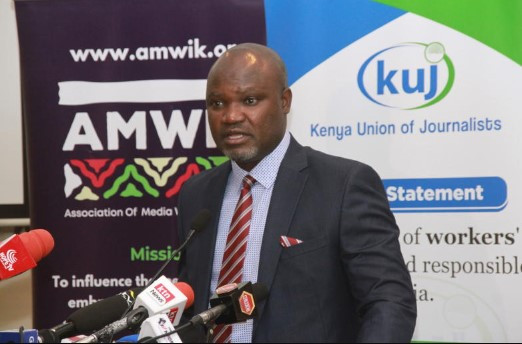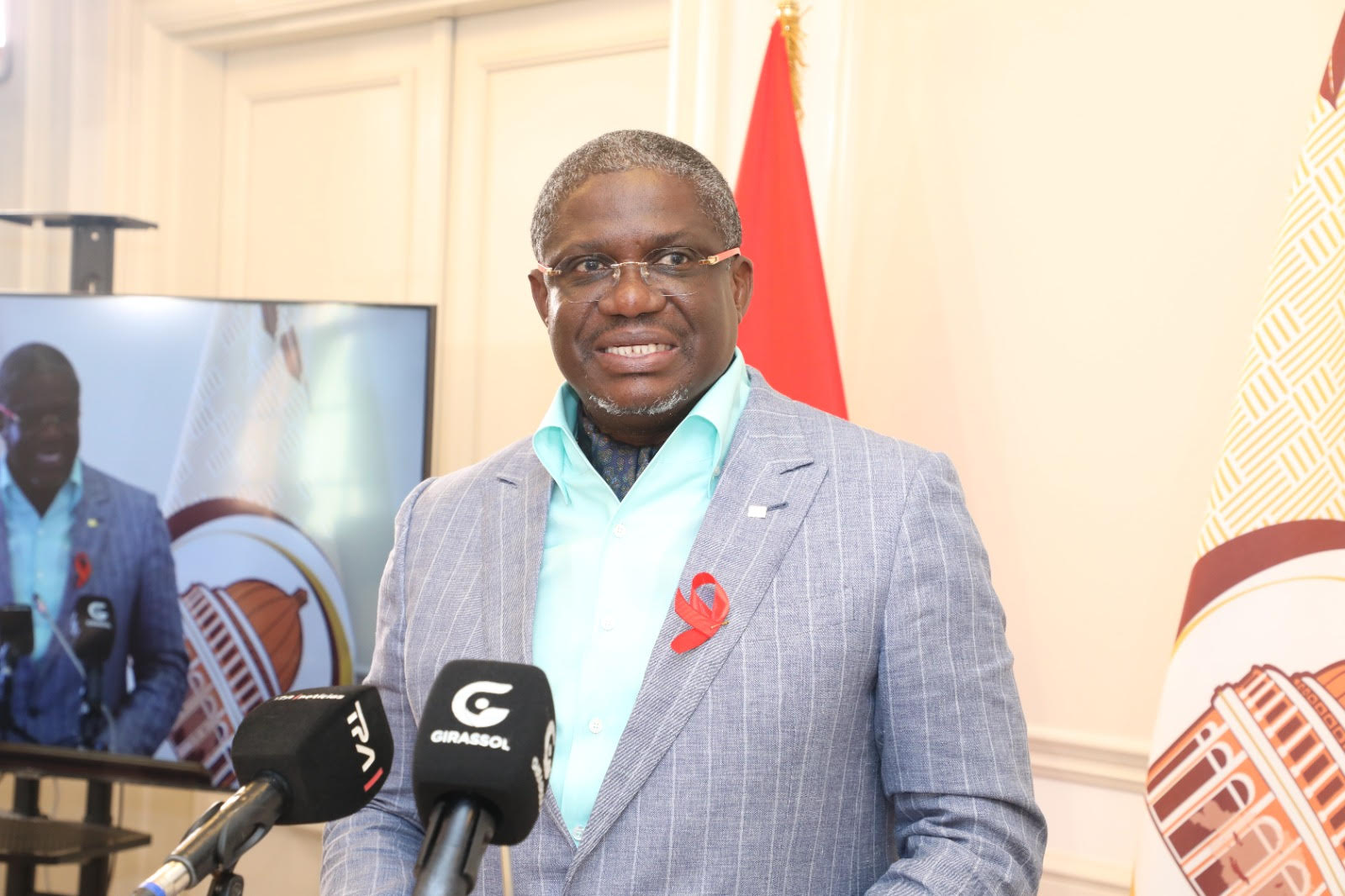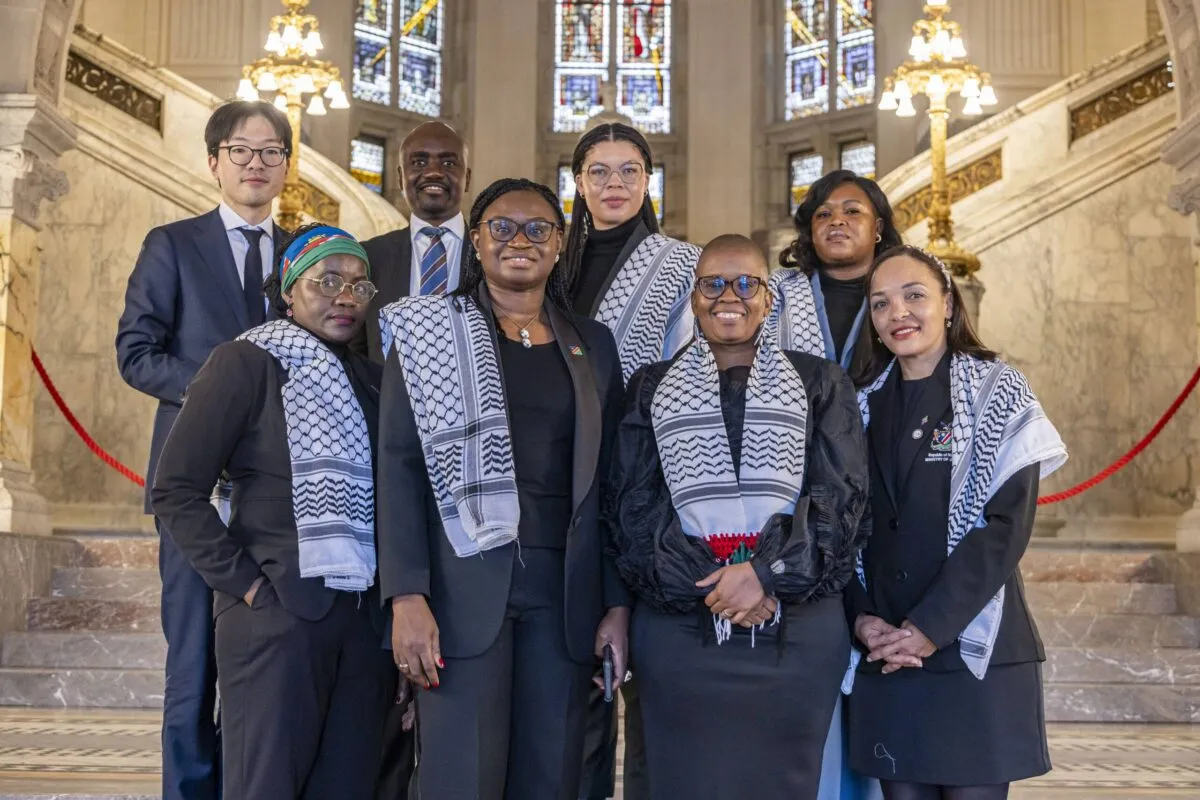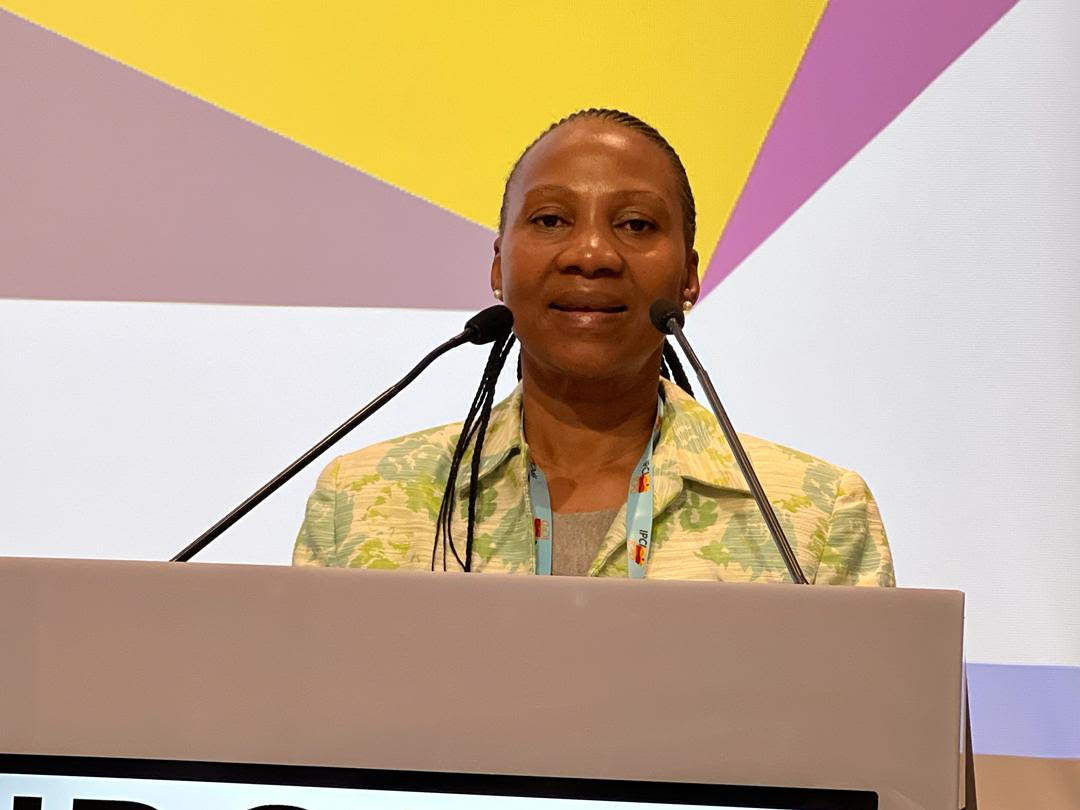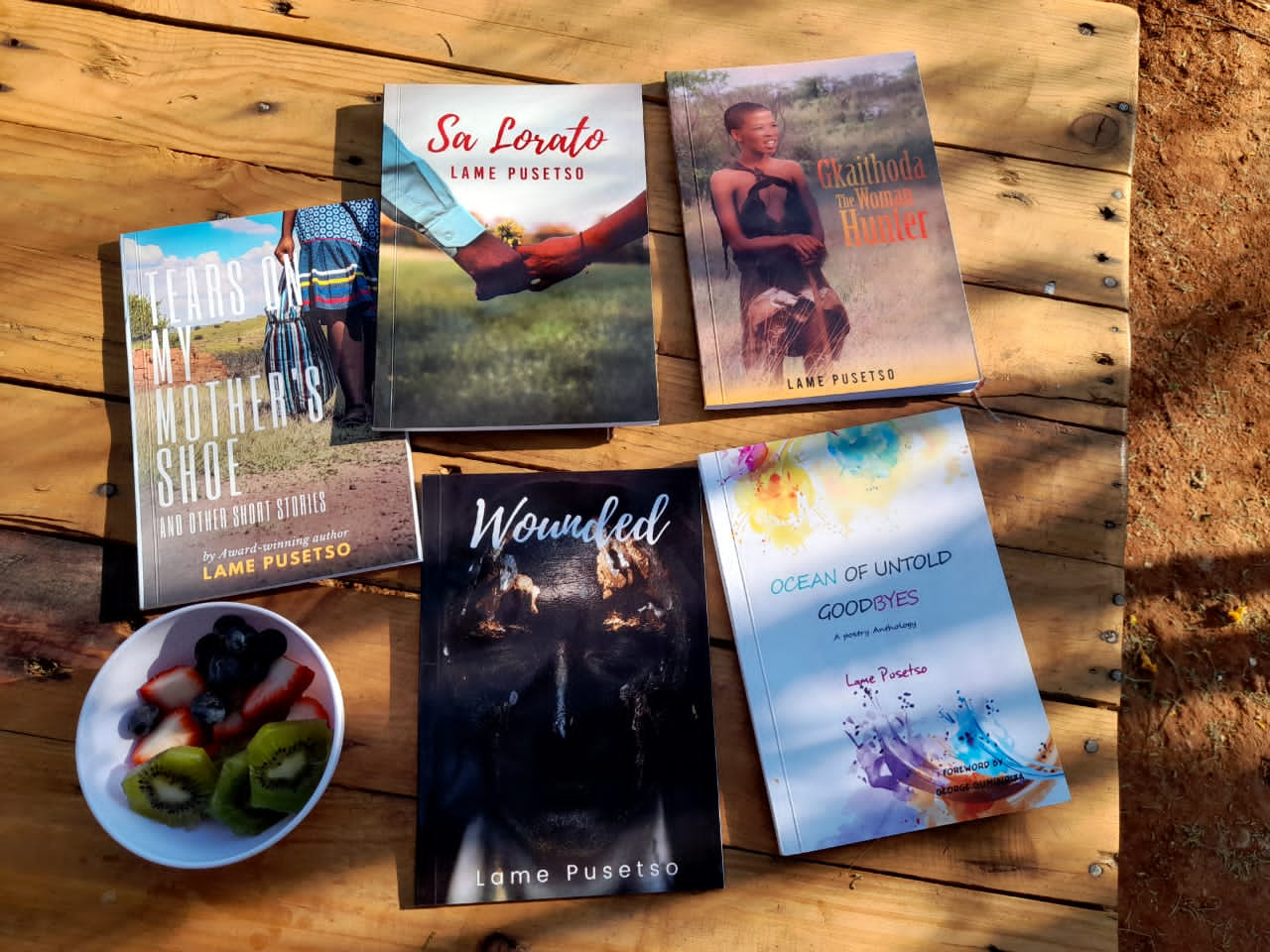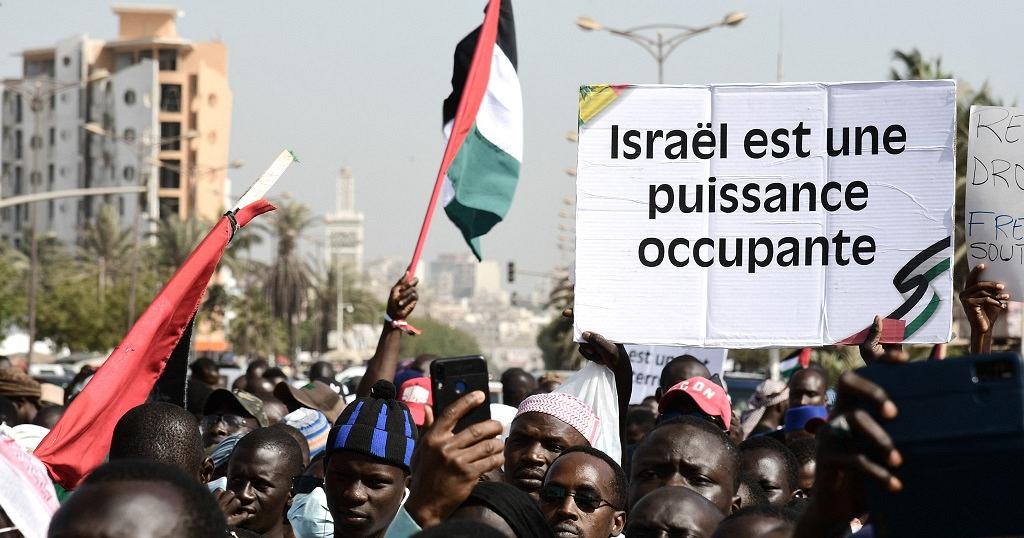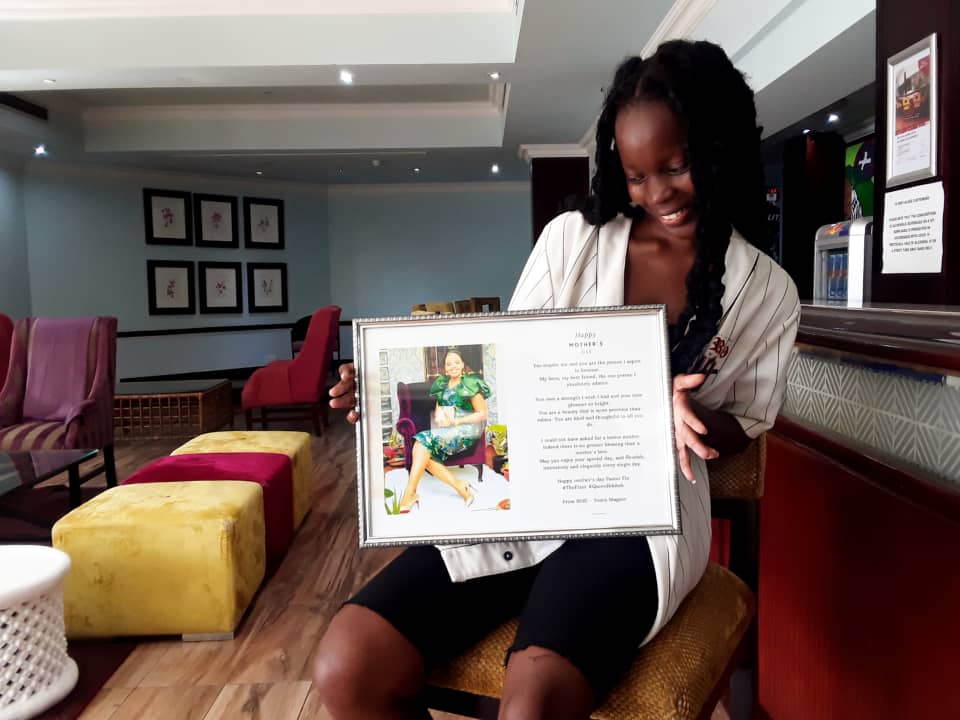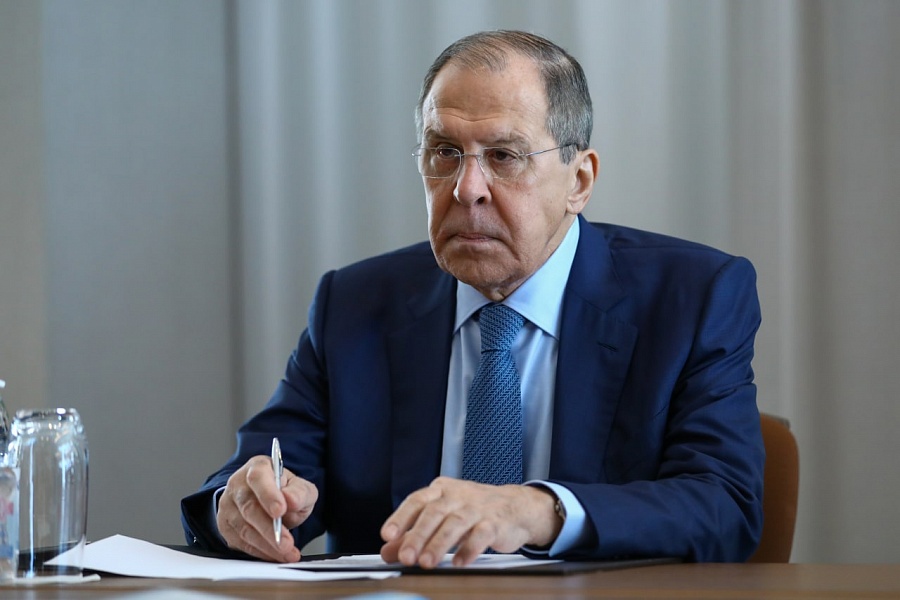
Russian Foreign Minister Sergey Lavrov
The Pan Afrikanist Watchman
- Russian Foreign Minister Sergey Lavrov’s interview with Argumenty i Fakty newspaper, April 4, 2023 on the back of the state visit by Chinese President Xi Jinping to Russia.
Argumenty i Fakty: Chinese President Xi Jinping recently was in Russia on an official visit. What was the outcome of the Russian-Chinese talks?
Sergey Lavrov: The state visit by President of the People’s Republic of China Xi Jinping to Russia on March 20-22 was his first foreign trip after being re-elected as head of state and is a milestone in the most recent history of Russian-Chinese relations which highlights the unprecedented level and special nature of bilateral cooperation.

The leaders of Russia and China communicated for about 10 hours in various formats, including a one-on-one dinner and a meeting over tea by the fireplace. The importance of personal contacts in promoting the entire range of bilateral ties cannot be overestimated.
According to President Putin, the exchange of views took place in a “warm, comradely and constructive atmosphere.” In turn, the President of the People’s Republic of China described communicating with the President of Russia as “open, friendly and productive.”
The talks with the participation of the delegations focused on the results of the comprehensive development of Russian-Chinese relations over the recent period and took stock of cooperation priorities across a variety of areas.
Xi Jinping had a productive meeting with Prime Minister Mikhail Mishustin to discuss the main areas for building up practical cooperation.
The main results of the summit are included in two critically important documents, the Joint Statement on Deepening the Russian-Chinese Comprehensive Partnership and Strategic Cooperation for a New Era and Joint Statement on the Plan to Promote the Key Elements of Russian-Chinese Economic Cooperation until 2030.
The heads of state stated the importance of continuing close foreign policy coordination. We share a vision of what is causing major international security challenges.
We note the West’s unwillingness to conduct a dialogue between the states based on the principles of equality. We oppose the use of sanctions pressure or other unfair competition tools.
Our strategic cooperation is not directed against third countries, but contributes to the balanced development of the international system in its entirety.
The Chinese side confirmed its balanced position on the Ukraine issue. We welcome Beijing’s willingness to play a constructive role in the political and diplomatic settlement of the conflict.
We note that the main provisions of our Chinese partners’ policy paper regarding the situation in Ukraine overlap with our approaches, especially in terms of the importance of ensuring equal and indivisible security for all countries in Europe and the world at large.
So far, the peace process has been hampered by Kiev and its Western curators who are making every effort to drag out the hostilities.
The PRC leader’s visit was widely covered by international media and literally made headlines around the globe which confirms the fact that the Russian-Chinese strategic partnership has long since transcended an exclusively bilateral context.
Clearly, the world has heard our articulated common positions on the key issues of our time.
Question: In the run-up to Xi Jinping’s visit to Russia, Chinese Ambassador to Moscow Zhang Hanhui had the following to say, “China will continue to build back-to-back strategic cooperation with Russia.” Can you sense the “back” of Chinese Foreign Minister Qin Gang?
Sergey Lavrov: Just like his predecessors, including current member of the Politburo of the CPC Central Committee Wang Yi who oversees foreign policy, Yang Jiechi, Li Zhaoxing and many prominent Chinese diplomats before him, Minister Qin Gang is my good friend and partner.
Without a doubt, we have a sense of comradeship and are ready to act shoulder to shoulder in order to uphold one another’s fundamental interests as we carry out strategic coordination of our efforts in the international arena.
We have repeatedly emphasised that Russian-Chinese interaction plays a crucial role in creating a more just, balanced and polycentric world order based on international law and UN centrality.
Foreign Minister Qin Gang is an experienced and highly professional diplomat who visited our country many times before his appointment to this responsible post. He and I have established effective communication.
Our first meeting took place on the sidelines of the G20 Foreign Ministers’ Meeting in New Delhi on March 2. We have signed a ministerial consultation plan for this year.
Acting within the framework of this important mechanism, we are about to resume in-person meetings for the deputy ministers and relevant departments of our respective foreign ministries to coordinate our approaches.
During Xi Jinping’s visit, I had contacts with Wang Yi and Qin Gang. Meetings with Minister Qin Gang on the sidelines of other multilateral events are planned as well.
Russian-Chinese relations continue to develop progressively. We have much to accomplish together in order to resolve a significant number of practical issues.
Question: It’s no secret there are experts out there who doubt the possibility of truly equal Russian-Chinese relations, including due to different levels of our countries’ economic development. What can you say to these experts?
Sergey Lavrov: The alleged “dependence” and “inequality” of Russian-Chinese relations has been discussed ad-nauseum mostly in unfriendly countries for a long time now. This issue was again raised by some “experts” after Chinese President Xi Jinping’s recent visit to Moscow.
We see this as an attempt to cast aspersions on our successes and to drive a wedge into the friendship between Moscow and Beijing.
These designs can be easily read into, and standard tricks by the playbook have long become boring and no one is paying attention to them.
At the peak of Russian energy supplies to Europe not a single Western analyst was trying to scare Russia about its dependence on the EU. Just the other way round, the US warned Europe against hydrocarbon supplies from our country in a bid to replace them with its own shale oil and gas.
Now that we are re-orienting our exports to Asia, they suddenly decided to take care of us and give us a “friendly” reminder about potential dependence on China.
Thanks for the advice, but we will use our own judgment and rely solely on national interests and our reliable Chinese friends who are tested by time and real-life actions.
Serious foreign affairs experts know that ramified ties exist between countries in the modern multipolar world. China has been Russia’s main trading partner for 13 consecutive years now.
Over the past two years, bilateral trade was growing by a third annually and reached a new record-high level of $185 billion in 2022. We supply each other, on a mutually beneficial basis, with the products that our countries need.
Importantly, over half of the settlements between our countries are denominated in national currencies. Our cooperation is not limited to trade, but covers a very wide range from energy and industry to agriculture and space exploration.
We have developed a relationship of positive interdependence with China in trade and economic ties, and this outcome of our work cannot but satisfy us.
Question: After the UK announced plans to supply Ukraine with depleted uranium munitions, Russian Defence Minister Sergei Shoigu issued a warning to the effect that “fewer steps are now left on the way to a nuclear clash.” What can Russia do on the diplomatic front to increase the number of these steps?
Sergey Lavrov: Diplomacy’s goal is to search for and develop peaceful, political and diplomatic ways to resolve differences and conflicts between states, including, of course, nuclear powers.
This is where we run into a problem, which is most accurately described by the rather tired but accurate expression “it takes two to tango.”
Russia has repeatedly come up with constructive ideas and pragmatic and non-politicised proposals for overcoming pressing international issues, such as President Putin’s December 2021 initiative to provide Russia with legally binding security guarantees in the western direction.
However, Washington and Brussels ignored us or reacted to this initiative negatively which led to the current crisis in Ukraine.
For our part, we remain open to contacts, but on an equal footing and with mandatory consideration of Russia’s interests in order to improve the situation in Europe and the Euro-Atlantic region and reduce nuclear risks in the long run.
The main prerequisite here is for the West to abandon its aggressive and hostile policy. However, the West is not willing to do this or to start a constructive dialogue with us, but is instead looking 24/7 for new ways to contain Russia.
This policy is clearly dangerous which is what we are trying to convey to our Western colleagues using every available avenue.
Question: You have described more than once how the Americans are exerting pressure on African countries, using a very primitive mechanism of influence. When the Africans ask the Americans about the benefits for those who side with them, Washington replies that they won’t be punished. And what does Russia offer the Africans?
Sergey Lavrov: Indeed, the United States and its allies are doing all they can to isolate Russia internationally. For example, they are trying to torpedo the second Russia-Africa Summit scheduled to take place in St Petersburg in late July. They are trying to dissuade our African friends from taking part in it.
However, there are fewer and fewer volunteers willing to sacrifice their vital interests for Washington and its henchmen and to pull the chestnuts out of the fire for the former colonial powers.
Therefore, attempts to undermine our cooperation with the states of the global South and East will persist, although their success is far from guaranteed.
Our main difference from the Westerners is that we never lecture our foreign partners on how they should live. We do not have a hidden agenda or double standards. We are building our interstate interaction on the principles of international law, equality, mutual respect and consideration of interests.
We believe that this creative approach appeals to Africans and not only them. All normal countries find it attractive.
And, of course, we have a lot to offer our African friends, including assistance in ensuring national security and meeting their humanitarian needs.
African countries are interested in Russia’s participation in training their professional personnel. We have traditionally strong positions in this area. Russian higher education has been in great demand among several generations of Africans.
This is just a small part of the versatile mutually beneficial cooperation between Russia and African countries and we are going to develop it in every possible way.
Question: The Second Summit and the Russia-Africa Economic and Humanitarian Forum due to take place in St. Petersburg next summer are bound to be a success if words and promises are matched by the implementation of specific strategic projects. Is Moscow preparing any surprises?
Sergey Lavrov: We view the St Petersburg Summit as a systemic element of Russia-Africa cooperation. We are filling it with meaningful content in close cooperation with our African friends.
Its agenda includes such items as technology transfer and development of industry and critical infrastructure in Africa. We are going to discuss in detail Russia’s participation in projects on digitising African states, developing their power engineering, agriculture and mineral extraction, and ensuring their food and energy security. This is far from a complete list of themes we will focus on.
I believe that the summit will strengthen Russia-Africa cooperation, provide a vector for the development of the entire range of relations with Africa in a mid-term perspective, and make a tangible contribution to the effective resolution of regional and international issues.
Question: Earlier, you often visited EU countries but now the geography of your trips has changed for obvious reasons. Do you think the EU has lost Russia for a long time to come?
Sergey Lavrov: Indeed, the geography of my foreign trips has changed. Now it reflects Russia’s international priorities in line with the updated Foreign Policy Concept.
You have made a very good point that the EU has lost Russia but this is of its own making. The EU countries and EU leaders are openly talking about the need to inflict a strategic defeat on Russia, as they put it.
They are pumping the criminal Kiev regime full of weapons and ammunition, and are sending instructors and mercenaries to Ukraine. This is why we consider the EU to be an unfriendly association.
We have drawn the necessary conclusions. We will respond to hostile steps in a tough manner if need be, guided by the national interests of Russia and the principle of reciprocity that is universally accepted in diplomatic practice.
If the Europeans decide one day to give up their anti-Russia course and start a mutually respectful dialogue with Russia, we will review their proposals and make decisions proceeding from our national interests that President Vladimir Putin has approved in the new Foreign Policy Concept of the Russian Federation.
